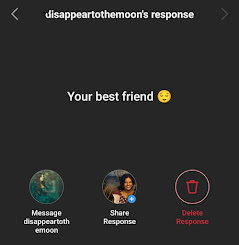Sylvia (2003)
Dear readers, I have always found Sylvia Plath's works to be fascinating. She's that poet whose poetry speaks right to my heart. More than any other writers, Emily Dickinson and Sylvia Plath speak to me. Plath's personal experiences have a strong psychological influence on most of her writings.
My first thought when I considered writing about Plath was the movie Sylvia (2003). At Christ (Deemed to be University), Bangalore, I was pursuing my postgraduate degree (but was unable to continue due to personal reasons). Every Wednesday, we used to host an event called the Scholar's Forum. During the final two hours, which run from 2 to 4 p.m., there will be thought-provoking talks, workshops, movie screenings, and book discussions.
They screened this movie on September 7th, 2023. Being a huge fan of Plath, I couldn't wait to see the movie with my classmates. Although I was somewhat familiar with her personal life, it seemed strange to observe things through the lens of a camera. I didn't realize the depth and relevance of her writings until I saw it as a movie.
If you are familiar with Plath, you will definitely know about her capacity to imagine herself in historical events and to write about them as though she had experienced the cruelty. "I think that personal experience shouldn't be a kind of shut box and mirror-looking narcissistic experience, I believe it should be generally relevant, to such things as Hiroshima and Dachau, and so on.”, she herself has stated.
Her broken marriage, the betrayal of her husband, and other personal hardships together contributed to the evolution of her writing, in my opinion. She was frequently linked to the "confessional school of poetry," as well as to Lowell and Sexton. Confessional poets discuss their life experiences (fun fact: sometimes it might not be their own experience), taboo subjects and the use of the personal pronoun 'I' is significant. Ted Hughes commented saying that Plath had the, “the central experience of a shattering of the self, and the labour of fitting it together again or finding a new one."
Describing the film, it starts with the story of how Ted Hughes and Sylvia met at a magazine publication event and eventually fell in love. Later, in 1956, they tie the knot. Their child is raised by Sylvia. She strives to carve out a life for herself as a writer—something Ted accomplishes effortlessly— while living in her husband's professional shadow. Ted is being unfaithful, as Sylvia correctly charges. After expelling him, she starts penning the poetry that would be included in her posthumous collection, Ariel. Ted and Sylvia reunite for a kiss during Ted's Christmas visit, but he claims he has to go back to Assia as she is pregnant. She quickly gets prepared to commit suicide by blocking off the kid's room from the gas coming from her gas oven. When the nurse arrives to remove the kid, Ted notices Plath's work lying on her desk. The last title tells us that Ted wrote his response in 1998, just before his death, and that it is included in a collection called Birthday Letters. She became quite popular after her book.
Sylvia begs Ted to leave Assia and return to her in the scene where he visits her and his kid. However, he declines her request, claiming Assia is expecting. As soon as he finished that sentence, I heard my classmates yelling in frustration. I clearly recall my friend wanting to slap him right away. If they had had the chance, the others would have destroyed the screen and the projector. That's how angry they were. "You have a child with Sylvia and you have the audacity to tell her that you can't leave Assia because she's pregnant," yelled a girl from my class. That day is still quite clear in my memory. This movie was the subject of discussions for over a month.
As everyone knows, Plath attempted suicide multiple times. Following her first suicide attempt, she wrote, "blissfully succumbed to the whirling blackness that I honestly believed was eternal oblivion". Her battle with depression throughout her life is evident in all of her written works. All things considered, I believe she would not have gone so far as to commit suicide if she had understood the worth of her life and the words she wrote.
"Suicide is not an option even when you don't have a solution."
To be Contd.. (I'll talk more about Plath's works in another post).
Regards,
S. Jennifer Sandra





Comments
Post a Comment